 |
|
City of 10,000 Buddhas and Cultivation
A Talk give by Valerie Tseng at CTTB on December 1, 2012
Buddhas and Bodhisattvas, Venerable Master, Dharma Masters, and Good Knowing Advisors…Amitofo.
A few years ago, in a special report, the National Geographic, a well known US magazine wrote:
“Sacred sites lay scattered across the globe, spread like seeds to the wind as if by the hands of gods. From the cradles of ancient civilizations in Asia, Africa, and Europe to the newer world of America to the farthest reaches of Oceania, the world’s holiest places transcend national and cultural boundaries. Some are hallowed by reports of modern miracles, and others are as old as the Earth itself. Yet each, when encountered, is a place where the human spirit can soar with a sense of the sublime.”
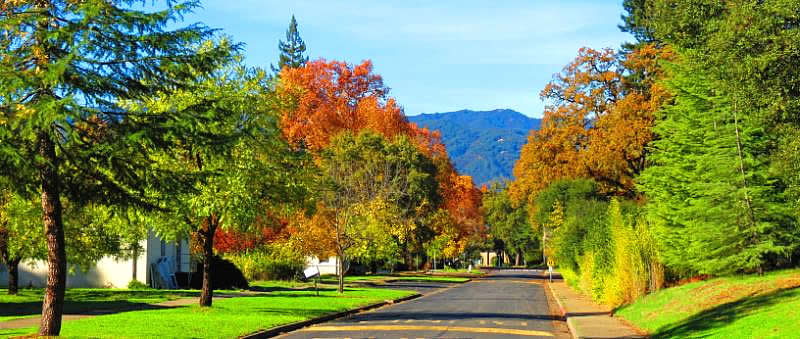
I jumped with joy when I spotted CTTB on that world map, named as one of those sacred sites. I thought, “At last, a worldly recognition of one of my favorite places.” Some animals, small and large take refuge here.

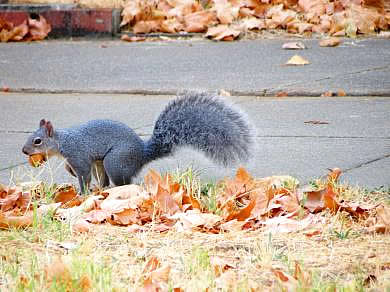
The morning tranquility and natural beauty here is a wonder. When I am mindful, I wake up grateful for my life and cherish spending most of my waking hours in such a truly beautiful place – beauty inside and out. While so many people are in suffering and while so many global disasters strike, I constantly remind myself not to take for granted what I have. To me, humble CTTB is still an undiscovered treasure and often misunderstood. I hope our monastery will continue to ripple sublime goodness and bring hope to humanity far and near.
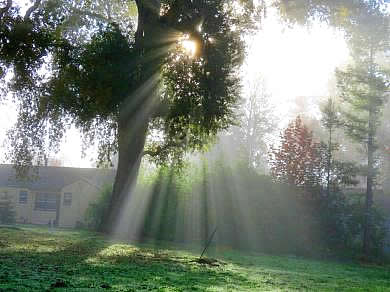
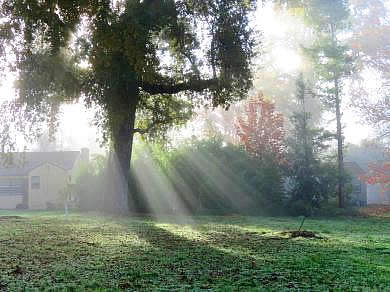
It was just over a year ago, in August that I moved to Ukiah from the Bay Area. My daughter made a last minute decision to attend Instilling Goodness Elementary during our retreat at Buddha Root Farm. Actually, it occurred on the last day of the retreat, after everyone shared personal reflection of the week. Interestingly, the theme of the retreat was the Bodhi Resolve. So, here I am at the City of Ten Thousand Buddhas, volunteering. I mainly teach elementary students at our girl school and assist with DRBU’s new program which is applying for accreditation. My transition here was surprisingly smooth. Perhaps it was because the lifestyle here resonates with me. In fact, CTTB encourages me to live a richer life practicing the Dharma…to live more simply, to be more environmental, to consume less, to be more frugal, to be more understanding, more mindful, more grateful etc.
Nevertheless, there were concerns that I might not survive (here in this new environment/lifestyle). Coming from a high tech environment to the countryside itself, is a significant shift. Growing up in a non-Asian country puts me at a cultural disadvantage. In the end, I believe I got help from the Venerable Master. He knows of all my foolishness and idealism, so he has been the voice of reason. To be happy at CTTB, I found that it is important to have pure intentions and work from a heart of sincerity, integrity, good faith, and honesty. It is easy to take things for granted as time passes by and lose that enthusiasm that shone at the beginning.
So, my daughter brought me here. From the very start, it was not about wanting to become something or to achieve great things. It was just about doing what I could, trying to contribute within my capacity. To be honest, it’s nothing complicated. I was inspired to mirror my surrounding. When help is needed, people at CTTB just see what's needed and do it. It's that simple. When residents come across needs and find that something ought to be done, they do it. That kind of simple heart is the most beautiful, I think, and doing what needs to be done is the best way.
Hence, I’m busy every day. Though I am a credentialed teacher and I have half the class size I had teaching in public school, I have a challenging class this year. The dynamics of my students make everyday seems a challenge to stay tranquil. Instead of chatty talks, I have to nurture purposeful conversations. I have to direct energetic, playful 2nd and 3rd graders to put on hold their natural tendency to socialize, to stay on task with their class work, to be attentive. Our teachers are responsible not only for students’ academic achievement but also their character development. Helping today’s generation form wholesome character can be quite an endeavor. So, when students fight or hurt each other, we have to be peace makers. When they become lost in their cyclic emotions, we have to help them find reason and light. There are days when teachers are exhausted from all the drama in our class, but every day is like a blank sheet of paper. Ultimately, students have brought great insights about the human nature and helped me cultivate. When the fifth Patriarch transmitted the Dharma to the Sixth Patriarch he said to him, "Do not speak too soon, for the Buddhadharma arises from difficulty." This inspires me to move forward.
In his lifetime, the Buddha met many different kinds of people. Some were kings and ministers of court; some were people who lived in poverty, yet others were prominent and influential people of society. In fact, the Buddha interacted with people from all walks of life. Depending on the people he encountered, he offered the teaching most suited to their conditions in life. But no matter who he spoke to, his purpose in giving teachings was always the same—such as to help people awaken from delusion so they may aspire to learn the Dharma, realize the true nature of life, and begin walking the path of enlightenment.
The Buddha teaches me that in daily life, though I am often not aware of it, there are poisoned arrows constantly coming at us—they are arrows of love (very strong liking), delusion, craving, greed, anger, ignorance, arrogance, opinion, arising and disappearing. At any moment, we could get hit by one of these poisoned arrows and become seriously injured. For example, as our eyes make contact with the sensory world with all its forms and sights, in the space of an instant, the arrow of like and dislikes hits us. With this liking, we pursue the thing that we like and run away from what we dislike. In our everyday life, thoughts of this nature are constantly arising. We start to chase after all sorts of things. Our minds know no peace.
Just as strong liking is a poisoned arrow, the Buddha says, so is delusion. Craving, greed, anger, ignorance, arrogance, opinion, arising and disappearing are all arrows that can speedily cause us harm. At the moment we give rise to any such thought, we are hit by a poisoned arrow. We lose our wellbeing and peace of mind. We become physically and spiritually off-balance—discontent, distressed, wretched, and miserable. This creates a lot of suffering in us.
Hearing this teaching, many people began to see the truth of what the Buddha said. They started to feel a sense of regret and remorse at having been so lost in the pleasures of their comfortable lives that they were unaware of how they were injuring themselves physically and spiritually. With this seed of awareness, they thought of the Buddha who had once been a prince and enjoyed life's luxuries. Why had the Buddha been willing to give up such a comfortable life to undergo innumerable hardships and difficulties for his spiritual practice? Why was he able to remain so firm in his commitment to spiritual practice?
The Buddha once had a very good life. But in the midst of it, he came to realize that if he continued to indulge in pleasures, he was actually wearing himself out physically and spiritually. Such a life does a lot of harm. We could go through our entire life like this, and in doing so, life would become a waste and we would accumulate a lot of negative karma through our behavior. Somewhat realizing this, I wanted to immediately put a stop to it. I wanted to dodge the arrows, and for the ones I'd already been hit by, to quickly pull them out.
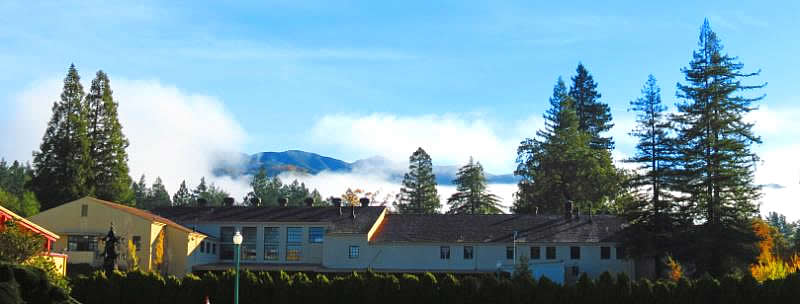
In conclusion, I am grateful to the Venerable Master and everyone at the City of Ten Thousand Buddhas for creating this shelter from poisoned arrows. Thank you for this refuge where “the human spirit can soar with a sense of the sublime”, as described by the National Geographic. Amitofo!
